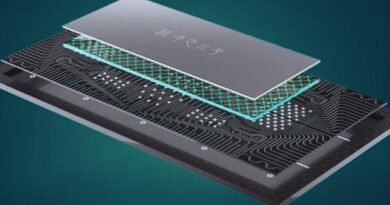Tiny Radioactive Battery Promises 50-Year Lifespan, Launching in 2025

A groundbreaking development in energy storage: a compact radioactive battery set to revolutionize the landscape with an impressive 50-year lifespan, scheduled for release in 2025.
BetaVolt introduces BV100, a groundbreaking nuclear battery powered by a radioactive nickel isotope, capable of supplying uninterrupted power for up to 50 years without recharging. This compact marvel, smaller than a coin at 0.6 x 0.6 x 0.2 inches, generates 100 microwatts of power. While Betavolt envisions applications in smartphones, Juan Claudio Nino, a materials scientist at the University of Florida, expresses skepticism about its current capacity to efficiently power cell phones.
Nuclear batteries, with roots dating back to the 1950s, derive energy from the decay of radioactive isotopes, providing enduring power for spacecraft and scientific stations. The BV100 relies on nickel-63 as the radioactive source, undergoing a beta pathway decay into copper. A semiconductor layer captures released electrons, converting them into a usable electric current.
Despite concerns about the safety of radioisotopes, Betavolt’s design incorporates shielding materials to ensure user safety. While nuclear batteries necessitate shielding, they offer a substantially higher energy density compared to conventional lithium-ion batteries, presenting a potential paradigm shift.
Addressing the challenge of maximizing power from a single battery is a key focus for Betavolt. Plans include launching a 1-watt battery in 2025, approaching the power requirements of standard cell phones (2-6 W). In the interim, the company suggests combining batteries in parallel as a viable solution.
Betavolt’s future roadmap involves exploring various nuclear isotopes like strontium-90, promethium-147, and deuterium in upcoming iterations, each offering different lifespan potentials ranging from two to 30 years in a device. The ongoing research and advancements in nuclear battery technology open up intriguing possibilities for long-lasting, efficient power sources across diverse applications.








